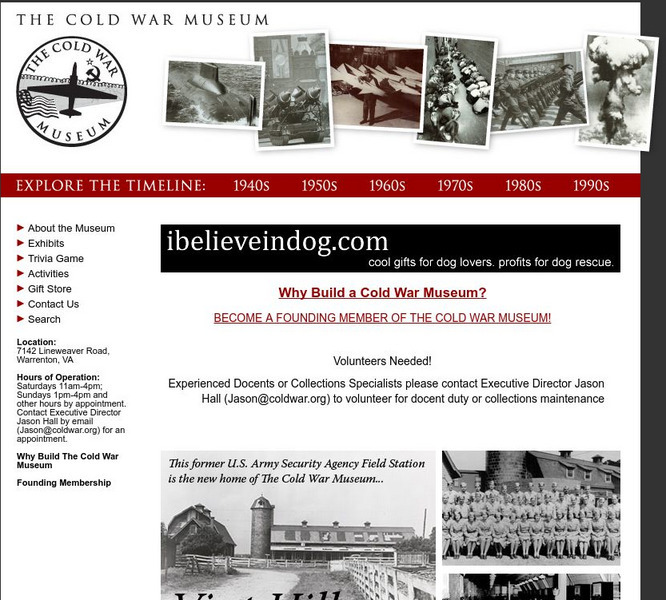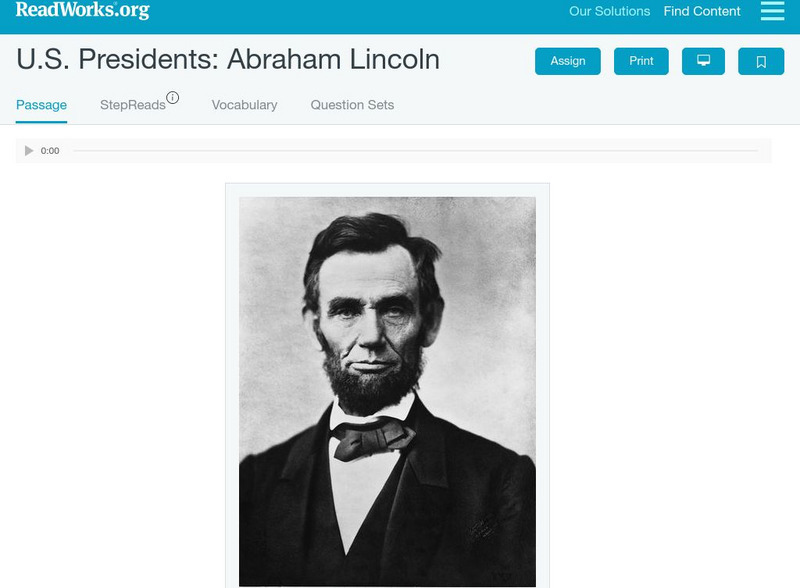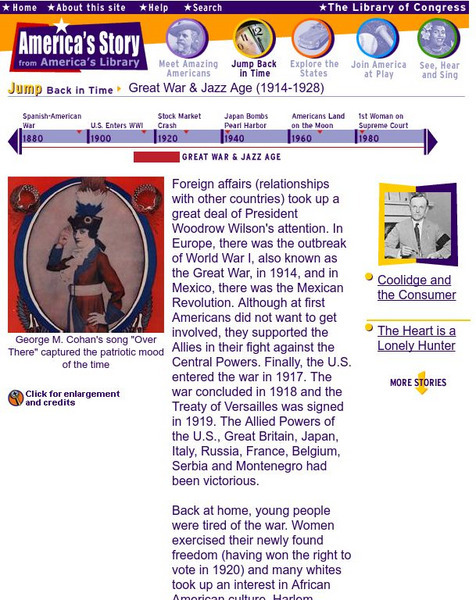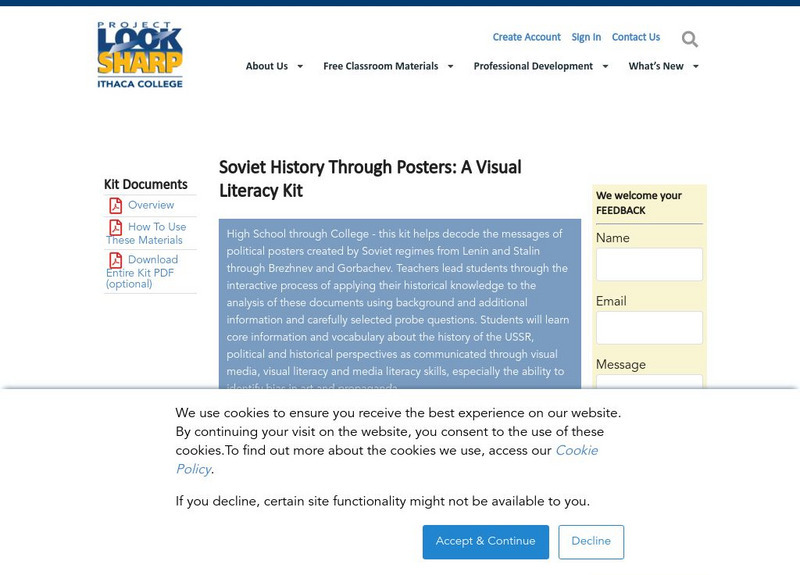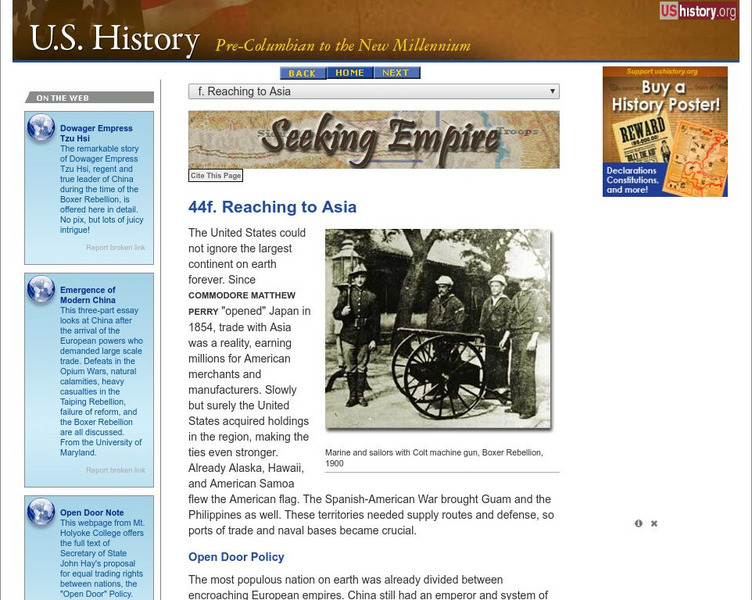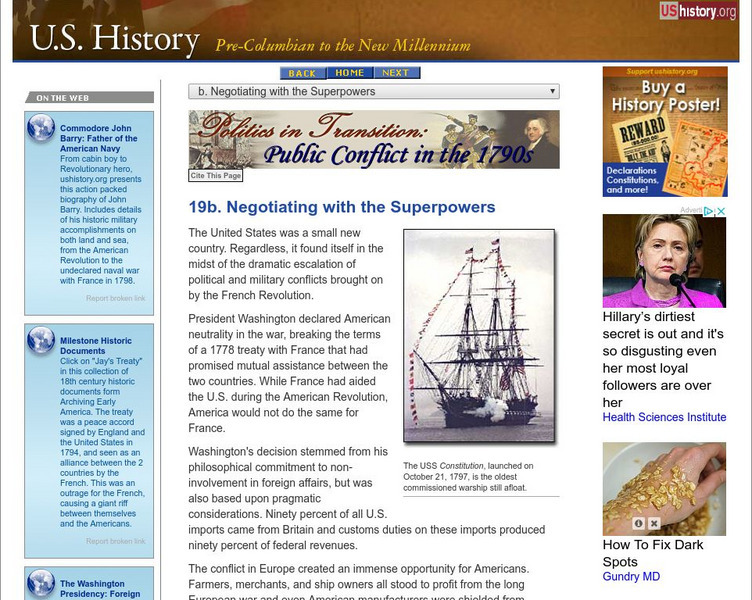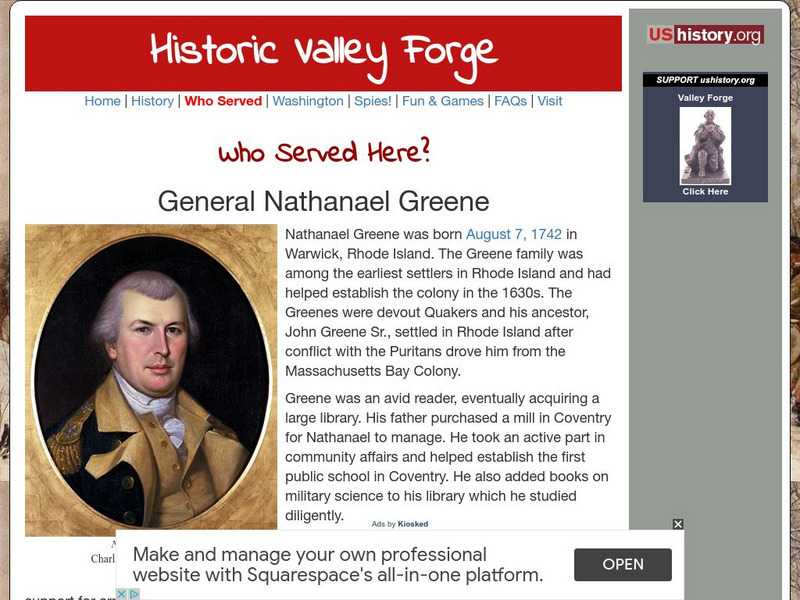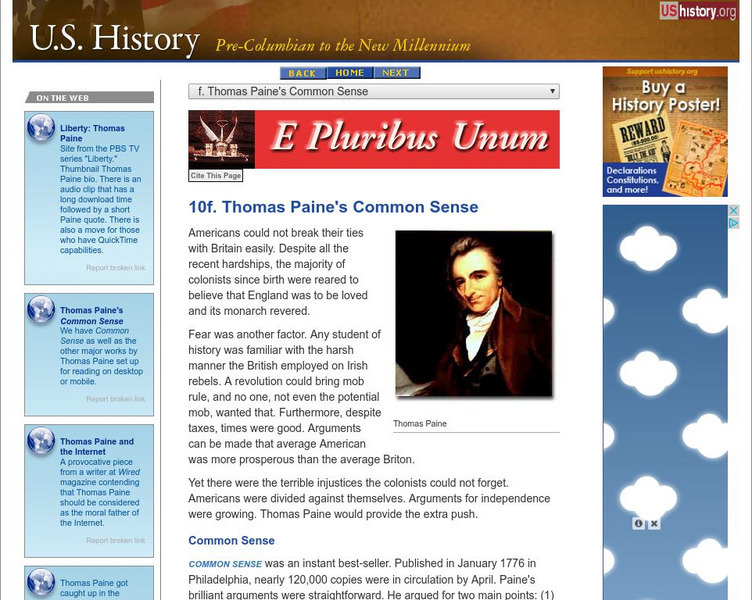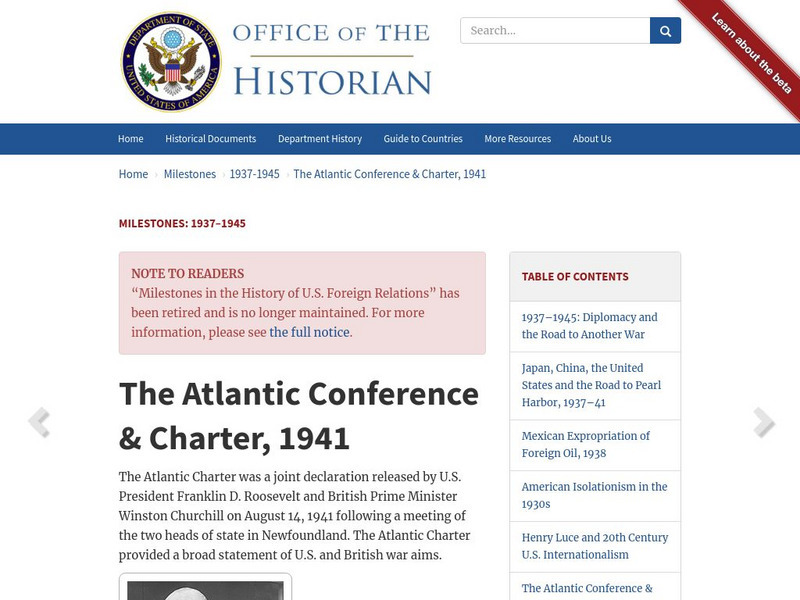Hi, what do you want to do?
The Cold War Museum
The Cold War Museum
Choose a decade of the Cold War to explore on the time line or take a look at the online exhibits. This site has great information about the Cold War.
Independence Hall Association
U.s. History: The Revolution on the Home Front
War is not confined to the battlefield. The economic consequences were great for the Americans during the Revolutionary War. Find out about what British occupation meant, and how women stepped up to keep the economy going while the men...
Library of Congress
Loc: Naacp: The New Negro Movement
Look through the items in this Library of Congress exhibition, NAACP: A Century in the Fight for Freedom. This part of the exhibition deals with events the NAACP was involved with in the early 20th century just before the Great...
Independence Hall Association
U.s. History: Wartime Diplomacy
Both the North and South wanted the British and French to support their cause. Read about cotton diplomacy, which the South used to court both Britain and France. See how the North was tied to Great Britain. Find out why both European...
Read Works
Read Works: u.s. Presidents Abraham Lincoln
[Free Registration/Login Required] An informational text about Abraham Lincoln, the sixteenth President of the United States. A question sheet is available to help students build skills in reading comprehension.
Library of Congress
Loc: America's Story: Great War & Jazz Age (1914 1928)
This Library of Congress time-line series surveys World War I and the Jazz Age. When World War I broke out in Europe, many changes were going on in the United States. Women were voting for the first time and African-American culture was...
Other
Ithaca College: Project Look Sharp: Soviet History Through Posters
[Free Registration/Login Required] Multi-unit curriculum kit on the history of the Soviet Union told in five episodes using Soviet posters as source material. Coverage includes the birth of the Soviet Union, Stalin, the Great Patriotic...
American Battlefield Trust
American Battlefield Trust: Civil War: Gettysburg Address Lesson Plan
A great lesson plan that examines Abraham Lincoln's greatest speech, the Gettysburg Address. Help young scholars understand the speech in context and why it is relevant today. The lesson plan objectives, video, power points, and a...
US National Archives
Nara: Prologue Magazine: War of 1812: Stoking the Fires
According to this very interesting article, it seems that the United States was just as culpable as Great Britain when it came to impressing sailors to serve on their ships. Read about the story of Charles Davis, a British citizen, who...
PBS
Pbs Learning Media: Primary Source Set: The Grapes of Wrath by John Steinbeck
This collection uses primary sources to explore John Steinbeck's novel, The Grapes of Wrath.
PBS
Pbs Learning Media: Primary Source Set: The New Deal
This collection uses primary sources to explore the New Deal.
Independence Hall Association
U.s. History: Reaching to Asia
Read about American entrance into the spheres of influence in Asia beginning as early as Commadore Perry and his opening of Japan. Find out about American policy in China, Theodore Roosevelt's Nobel Peace Prize, and U.S. relations with...
Other
The History Net
The History Net is a leading portal for history enthusiasts, researchers, educators, and students. Extensive content can be found on almost any topic. Use "site search" to quickly find what you are looking for.
Independence Hall Association
U.s. History: Negotiating With the Superpowers
Read about the problems President George Washington had with foreign affairs. Both France and Great Britain ignored American sovereignty and claims of neutrality. Read about Great Britain's disregard of the Treaty of Paris which ended...
University of Virginia
Miller Center at Uva: u.s. Presidents: Franklin Delano Roosevelt: Domestic Policies
Read about the scope of Roosevelt's New Deal from 1933 until 1939 and continue with his domestic policies during World War II. Find out how important Roosevelt's personality was to the implementation of his ideas.
Other
Colorado College: World War I Poster Collection: u.s. Liberty Bonds
Some examples of posters which were used during World War I to promote the buying of Liberty Bonds. Each thumbnail, when clicked on, links to a larger image and general information.
Independence Hall Association
U.s. History: General Nathanael Greene
An exhaustive biography of Nathanael Greene which contains not only biographical information, but also much information about the War in the South and military strategy. A great resource.
Independence Hall Association
U.s. History: Thomas Paine's Common Sense
Read about the rhetorical touches Thomas Paine employed in his pamphlet, Common Sense, which galvanized colonial thought about actually breaking away from Mother England.
The History Place
The History Place: The Vietnam War America Commits
This site from The History Place provides a lengthy timeline, accented with many quotations, explaining how America came to be directly involved in Vietnam. This is a great site to check out on the subject.
US Department of Labor
U.s. Department of Labor: Eras of the New Frontier and the Great Society, 1961 1969
This chapter focused on the New Frontier and Great Society will give readers a framework for the numerous domestic, social, and economic labor reform programs instituted between 1961-1969.
US Department of State
U.s. Department of State: Atlantic Charter
This article published by the US Department of State's Office of the Historian discusses the significance of the Atlantic Charter. In it Franklin Roosevelt and Winston Churchill agreed on a broad statement of war aims for Great Britain...
Independence Hall Association
U.s. History: America in the Second World War
A brief description of the course of World War II in both Europe and the Pacific. Read about the new technologies developed for the military by both the Allies and Axis powers, and find out about the millions who died as a result of the...
Other
U.s. Centennial Flight Commission: Air Power:the Battle of Britain
Read a concise account of the Battle of Britain, Adolf Hitler's attempt to conquer Great Britain in the summer of 1940. See how the British prevailed and what mistakes the Germans made.
Independence Hall Association
U.s. History: Northern Plans to End the War
By 1863 Northern military strategists developed a five-pronged plan to end the war. Read about how these goals were accomplished and at what great cost to both the Union and Confederate soldiers and civilians.





